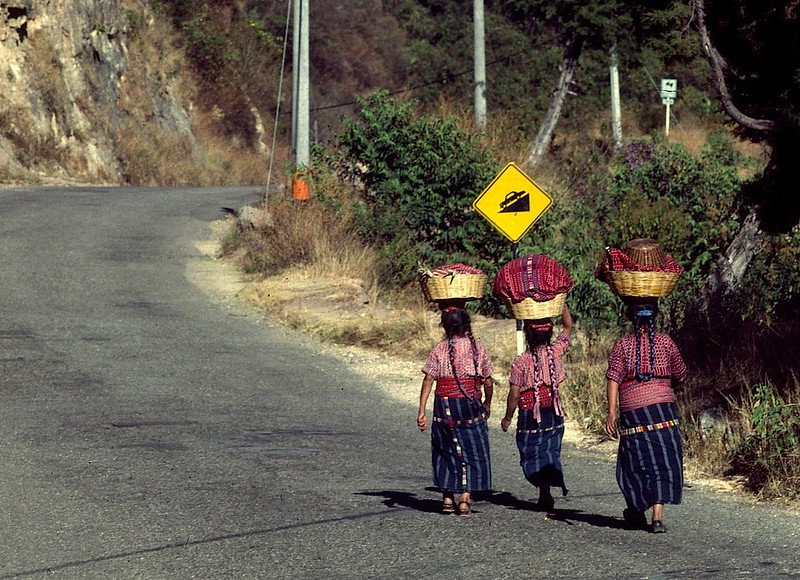Educating Mayan Women in Guatemala: MAIA Impact School
 In a country battling substantial rates of gender inequity and considerable ethnic divides, Mayan girls and women in Guatemala face twofold marginalization. MAIA Impact School’s focus is educating Mayan women. They have forged a space for indigenous girls to learn and empower themselves.
In a country battling substantial rates of gender inequity and considerable ethnic divides, Mayan girls and women in Guatemala face twofold marginalization. MAIA Impact School’s focus is educating Mayan women. They have forged a space for indigenous girls to learn and empower themselves.
Ethnic Divides: A History of Discrimination in Guatemala
Historically, Guatemala has seen some of the lowest educational attainment rates in Latin America and the highest levels of disparity in wealth and opportunity between indigenous and nonindigenous communities. To bridge ethnic divides at a supranational level, the U.N. General Assembly promulgated the International Decade of the World’s Indigenous Peoples in December 1994. Despite its aims, findings ten years later reported no significant improvement in poverty or education rates across Latin America. This lack was especially prevalent in countries with the highest concentration of indigenous peoples, including Guatemala.
Political underrepresentation and limited social participation of Mayan communities have continued to problematize social equity in Guatemala. Some experts point to a lack of Spanish literacy among rural indigenous communities as a contributing factor. Yet until recently, international aid groups have tended to focus only on addressing broader inequalities nationwide. As a result, indigenous-centric projects have gone remiss by a large portion of overseas funding.
Mayan Women Continue To Face Marginalization
As such, more attention is needed to address specific challenges around educating Mayan women in Guatemala. Since the COVID-19 pandemic, less than 20% of Mayan girls have finished high school, with 57% becoming mothers by age 20.
Prevailing cultural norms have neglected the importance of female education, which has had implications on current poverty rates in indigenous communities. Sololá, where 98% of the population is Mayan, has around 75% of civilians living on less than $2 a day.
By Women, for Women: The MAIA Impact School
In 2017, MAIA Impact School was founded in Sololá as a project explicitly targeted at educating Mayan women in Guatemala. MAIA enrolls young girls in intensive programs that aim to provide two years of academic growth in just a single year. These programs are combined with socioemotional development initiatives, including classes on reproductive health, community engagement and leadership development.
In light of stagnant school attendance rates after the COVID-19 pandemic, MAIA established “Project Impulso,” a leveling program to reinforce student performance in core academic areas, such as mathematics, literacy and languages. As of 2022, the school has maintained a 98% retention rate.
Vital Support From Outside
This year, MAIA’s staff team is now 100% indigenous and female-led, proving monumental in providing students with role models. The project has been endorsed by the British Embassy in Guatemala, with the ambassador having met with MAIA leaders and voicing his support for the initiative.
The impact school has been partnered with the global education community group Mona since 2022. Mona has donated over $17 million to the cause. This year, the project aims to accumulate $40,000 in funding to train at least 30 more teachers, provide internet access in buildings and implement “assessment tools” to track student progress and identify areas for improvement.
In 2021, the nonprofit group Team4Tech, which works to minimize digital gaps in “under-resourced” learning facilities worldwide, partnered with MAIA. The team has been helping to integrate technology into classrooms and provide stable and reliable internet access. They have also outsourced eight Barracuda volunteers specializing in digital safety to educate Mayan women about online safety and digital security, including preventative measures against bullying and identity fraud.
Beyond School: Education and Empowerment in Mayan Society
Community-based efforts show promising signs that Mayan women are gaining agency and self-empowerment outside of academia. The Asociación de Mujeres del Altiplano (Association of Highland Women or AMA) has hosted “Women’s Circles” since 1995. The AMA designed these events to encourage autonomy and entrepreneurship within the community, resulting in projects that have seen the construction of community centers, classrooms and sanitation systems. AMA works on these projects with the Highland Support Project, its sister group in the U.S.
While groups like MAIA have made strides in educating Mayan women in Guatemala, change is needed from a grassroots level to shift normative cultural behaviors that exclude women from the wider world. However, with efforts made by community-based initiatives, such orthodoxies in indigenous society have become less rigid.
– Cara Jenkins
Photo: Flickr
